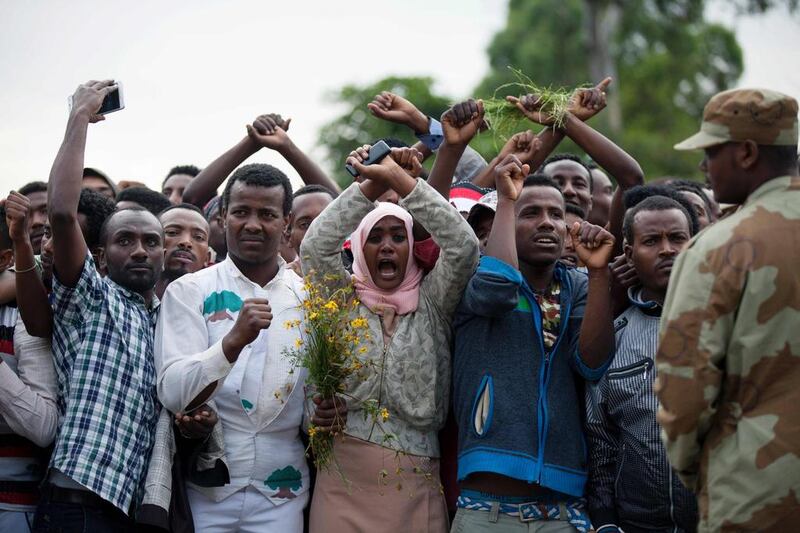ADDIS ABABA // Ethiopian prime minister Hailemariam Desalegn declared a six-month state of emergency on Sunday, following a week of anti-government violence that resulted in deaths and property damage across the country, especially in the Oromia region.
“A state of emergency has been declared because the situation posed a threat against the people of the country,” Mr Desalegn said on state-run television.
“The state of emergency is vital. It is essential to restore peace and stability over a short period of time,” he said, adding the ruling Ethiopian People’s Revolutionary Democratic Front (EPRDF) coalition was also looking at reforms, and planning to hold talks with opposition parties.
Ethiopia is facing its biggest anti-government unrest in a decade, from the majority Oromo and Amhara ethnic groups which feel marginalised by a minority-led government.
The declaration marks a further hardening of the government’s position after months of protests in different parts of the country which have been met with a strong security response that has left hundreds dead, according to human rights groups.
Last Sunday, at least 55 people were killed in a stampede in Ethiopia’s Oromia region that was triggered when police used teargas and shot in the air to disperse anti-government protesters at a annual religious celebration in Bishoftu town.
That has added the toll to more than 450 the number of people rights groups and opponents say have been killed in unrest since 2015.
The violence has put a shadow over a nation where a state-led industrial drive has created one of Africa’s fastest growing economies, but where the government has also faced rising international criticism and popular opposition to its authoritarian approach to development.
“The recent developments in Ethiopia have put the integrity of the nation at risk,” Mr Desalegn said.
“The state of emergency will not breach basic human rights enshrined under the Ethiopian constitution and won’t also affect diplomatic rights listed under the Vienna Convention,” he said.
The internet was blocked across many parts of Ethiopia, residents reported on Sunday. The government has blocked the internet for more than a week to prevent protesters from using social media to get supporters to attend demonstrations.
Anti-government protests continued on Sunday. Many roads into and out of the capital, Addis Ababa, were blocked by protesters and those who tried to drive through were targeted by people who jumped out from behind bushes and hurl rocks, witnesses said on Sunday.
On Tuesday, a US researcher was killed when her car was attacked by stone-throwers near Addis Ababa. The government says the toll cited by critics is inflated.
* Reuters, Agence France-Presse and Associated Press





